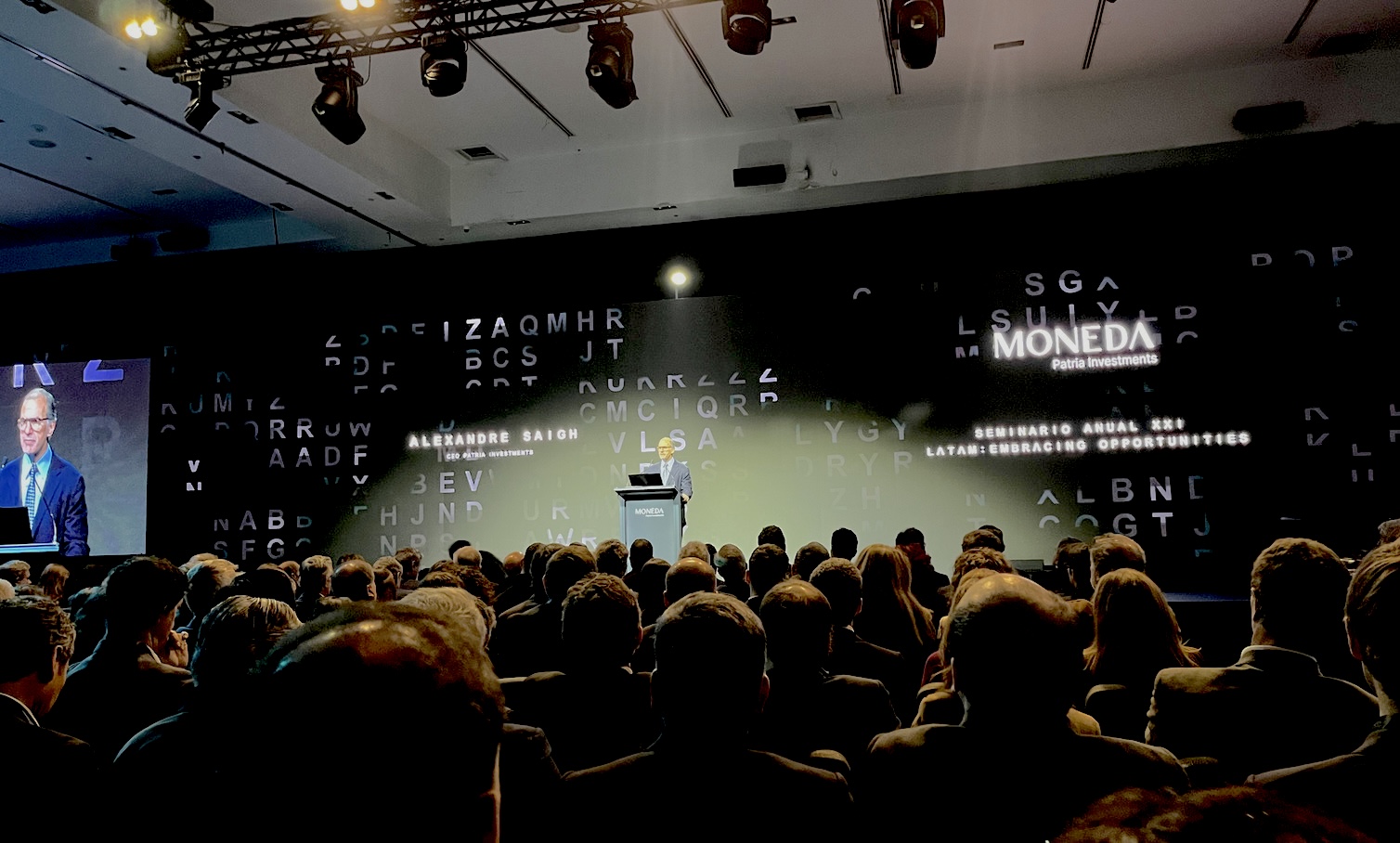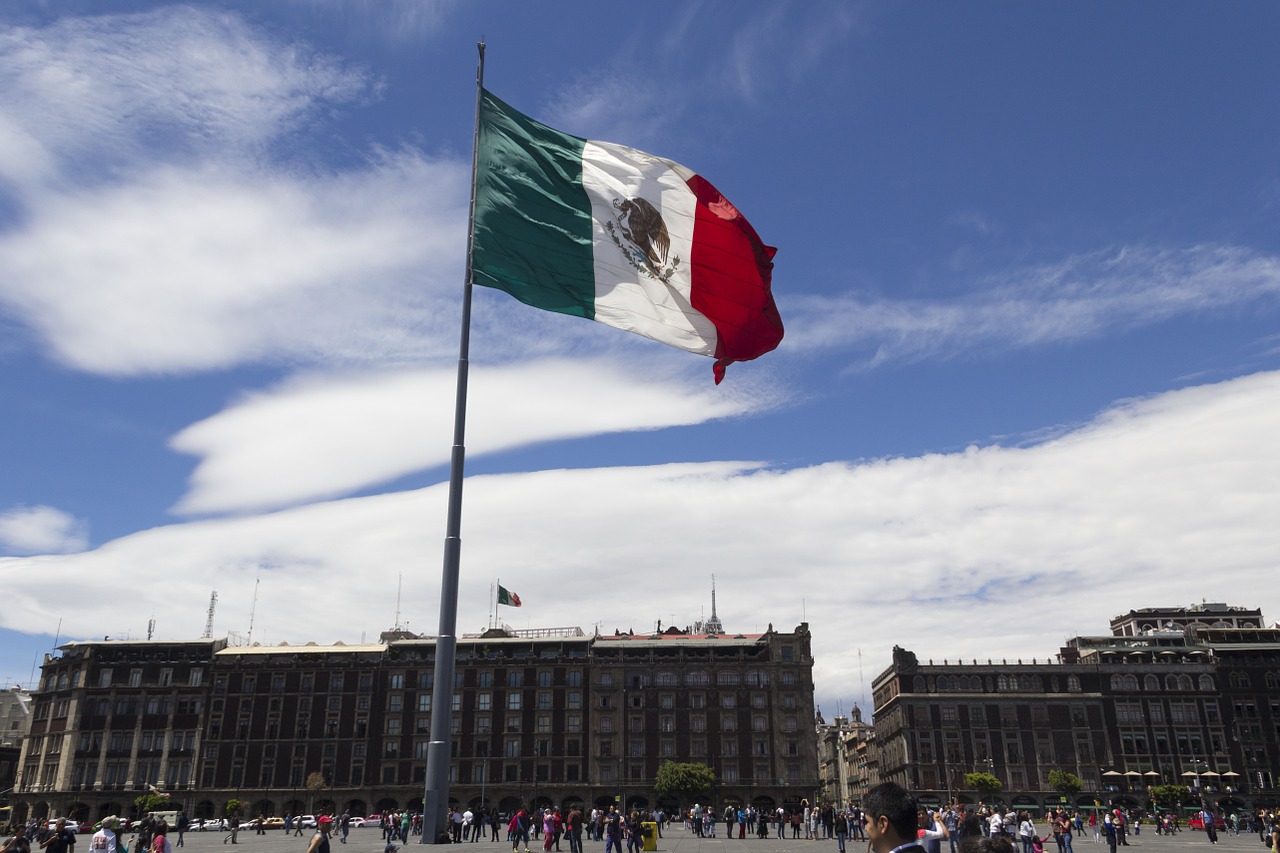An unmissable event for Chile’s financial industry, with a variety of key players from the local economy, took place this week in the main hall of the W Hotel in Santiago. The occasion: the twenty-first edition of the Moneda Patria Investments seminar, held under the theme “Latam: Embracing Opportunities.”
In his opening remarks, Alexandre Saigh, CEO of Patria Investments, emphasized that the global environment—including the sharp decline of the multilateral dollar—has pushed investors to seek opportunities in different markets, opening doors for Latin America. “Countries with stronger fundamentals have the potential to attract capital,” he noted.
Taking the podium, Pablo Echeverría, founding partner and president of Moneda Patria, reinforced the point: “That this region and our country offer great opportunities is undeniable,” he said.
The executive also referred to the local electoral cycle, which will determine the country’s next president at the end of this year. “The election of a new government gives us a chance to correct the course,” he said, following a decade of sluggish economic pace and with a series of challenges ahead—recovery of the capital market, housing deficit, long waiting lists in public healthcare, among others.
This was precisely the main course of the seminar, featuring presentations by the three leading presidential candidates, who are at the top of the polls. José Antonio Kast, Evelyn Matthei, and Jeannette Jara shared insights into the platforms with which they are competing for La Moneda, just 98 days before the first round of voting.
José Antonio Kast’s Vision
The first candidate, representing the ultra-conservative Republican Party, was Kast, who harshly criticized the current administration—under Gabriel Boric, in which Jara served as Minister of Labor and Social Welfare—and asserted the need to establish an “emergency government.” Emphasizing that people are “worried” about a series of issues—migration, crime, public health, etc.—including “the worst growth in decades,” the candidate described his program as a radical change.
On economic matters, Kast proposes cutting regulations, integrating the tax system, lowering corporate taxes—from 27% to 20% for large companies while maintaining the current 12.5% rate for SMEs—and reducing public spending. “The best public and social policy is full employment,” he stated.
The far-right candidate also stressed the issue of migration, pointing out a connection between the rise in homicides and the increasing perception of crime with the uptick in illegal entries into the country. “The first thing we are going to do is close the borders,” he promised.
Evelyn Matthei’s Plans
Later, it was the turn of Matthei, the center-right candidate from the Independent Democratic Union (UDI). She described a complex context for the Andean country, including extremely low economic growth. However, beyond emphasizing the importance of improving the country’s competitiveness and leveraging its resources and alliances, she also stressed the need to “achieve a more equitable, more cohesive country.”
Regarding her plans, the politician set a goal of 4% growth and raising 8 billion dollars annually. To achieve this, she proposed making fiscal savings. Specifically, she expects to cut 700 million dollars in medical leave—following a scandal that raised alarms in Chile this year—600 million dollars in public procurement, and 400 million dollars in bureaucracy (including overtime and political appointments). In total, she claims that public spending can be reduced by 2 billion dollars per year.
Additionally, Matthei proposed lowering the corporate tax to 23% for large companies and 10% for SMEs; integrating the tax system; creating a presidential office to monitor stalled investment projects; allowing pension funds to invest in national venture capital funds; and eliminating the capital gains tax on stock market transactions.
The Challenge for Jeannette Jara
On the other side of the political spectrum is the only candidate from the ruling coalition, selected by the Communist Party. At the start of her presentation, Jara delivered a clear message: “Fiscal convergence will be achieved.” And she drew the line further, stating that she does not plan to lower corporate taxes, as that would increase the fiscal deficit and public debt.
In addition to calling for the “execution of the investment portfolio we already have”—which she estimated at 80 billion dollars—the former minister outlined three pillars of her program. First, sustainable economic growth with decent wages. She also proposed complementing the fight against crime by attacking the financial sources of organized crime, following “the money trail.” This includes strengthening the Financial Analysis Unit (UAF). Finally, on social matters, she highlighted the need to accelerate the supply of social housing and offer preferential loans for young people to access the real estate market.
“I don’t do politics from aspirations, but from pragmatism,” said Jara during her presentation, recalling her key role in passing Chile’s pension reform. In that regard, on pension matters, she pledged to prioritize the implementation of the reform.
The Tariff Backdrop
But Chile was not the only focus at the Moneda Patria event. The global landscape, with its intricacies and the challenges and opportunities they bring for Latin America, also featured prominently.
In the view of Richard Baldwin, professor of international economics at IMD Business School, the current moment represents a transition from an era in which the U.S. led global trade to a new period with a more varied economic landscape. In that context, the academic emphasized that “Donald Trump’s policies are economically incoherent, but emotionally coherent.”
The key, he explained, is the “Doctrine of Grievance,” a perspective that has spread among Americans that other countries and international elites have taken advantage of the U.S., undermining its global position.
However, on the other hand, Wall Street has not been significantly affected by White House tariffs. This is because, according to the professor, markets view Trump as pragmatic enough to shake the boat with his announcements without allowing them to have more than a limited economic impact.
“We don’t know where this is heading,” Baldwin stated, noting that some suggest the next stage—rather than a cold war—will be a “G-0” world, without a clear power center leading global trade. And this shift, he assured, will bring both problems and opportunities, which could be promising for Latin America. In this sense, to navigate the current dynamics, the economist stressed the importance of maintaining good relations with both the U.S. and China, without straining commercial ties.
The seminar also featured the classic presentations by economists Sebastián Edwards and José Luis Daza. The former offered his own perspective on the situation in the U.S., warning about the speculative—so far—possibility that Trump may be attempting to undermine the independence of the Federal Reserve.
Daza, for his part, drew on his role as Argentina’s Deputy Minister of Economy and outlined the progress made by President Javier Milei’s government. The economist celebrated achieving fiscal balance in the administration’s first month and said they managed a fiscal adjustment of 20 billion dollars. “The results are extraordinary and will go down in the books,” he predicted.



